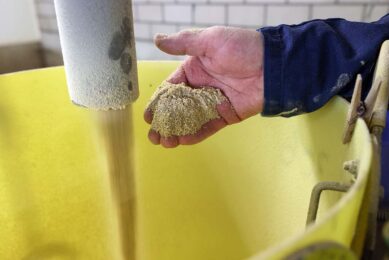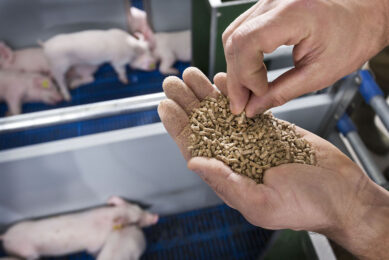Positive EFSA opinion for benzoic acid
The addition of benzoic acid to pig feed does not pose a risk on human health, according to the European food safety authority EFSA.
The scientific panel of EFSA (FEEDAP) tested the feed additive VevoVitall® on the safety for the target animal, consumer, user and the environment, and on the efficacy of the product.
The European Commission studied this feed additive after a request from Dutch chemical company DSM for authorisation. The additive consists of 99.9% benzoic acid in flaked form, to be used as a feed additive for fattening pigs.
Reducing ammonia
DSM claims that the use of the feed additive is effective in reducing urinary pH in pigs for fattening and subsequently reduces the production and ammonia emission to the environment with 30%.
Two of four feeding studies conduced by EFSA provide evidence for a significant reduction of ammonia emission at the highest level of 10,000 mg benzoic acid kg-1 diet, the lowest level (5,000 mg) being not effective in all studies.
Highest dose is safe
Since the relation between urinary pH and reduced ammonia emission is not adequately established, the FEEDAP panel cannot conclude on the efficacy of benzoic acid to reduce the ammonia emission.
However, on the basis of two tolerance studies the FEEDAP panel concludes that the highest dose is safe for pigs for fattening with a narrow margin of safety (less than 1.5).
Related websites:
• EFSA
• DSM
• European Commission
 Beheer
Beheer








 WP Admin
WP Admin  Bewerk bericht
Bewerk bericht